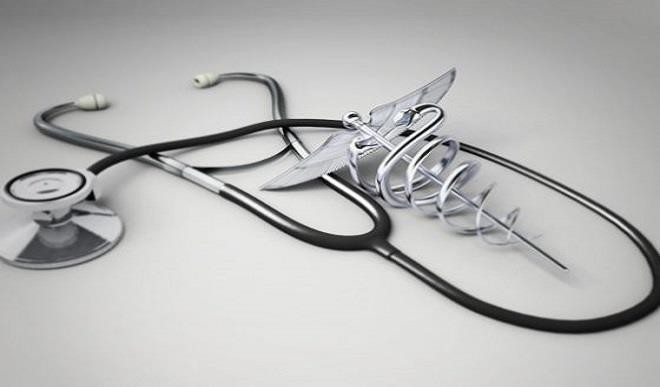The Nigerian healthcare system is currently struggling on many fronts, from inadequate infrastructure to gaps in key health policy implementation, shortage of personnel, persistent strikes, inadequate training, and absence of efficient multi-sectoral (public-private) partnerships.
Provision of healthcare is one of the primary objectives of all nations. A healthy nation is a productive nation. In Nigeria, accessing timely quality healthcare services in public health facilities has become a nightmare and therefore a disincentive to many people who look elsewhere for alternative solutions to their health needs. Thus, governments and all citizens have common interest in provision of quality healthcare.
In Nigeria, 7 out of 10 Nigerians live on less than $1.25 (~500 Naira) a day and they also live in a country where 70% of health expenditures are out-of-pocket payments. Nineteen years after the Abuja Declaration where African Union states pledged to allocate at least 15% of their annual budget to health, Nigeria continues to default. With over 23,584 public primary health care facilities, 8,290 private primary health care facilities and 200,000 patent and proprietary medicine vendors (PPMVs) in Nigeria and yet the country’s health indices and other health indicators continue to remain abysmal without any significant improvement compared to other countries in sub-Saharan Africa.
This got me thinking: How long do Nigerians have to depend on out of pocket payments for healthcare? Is that really a nurse, a doctor or a Pharmacist? How long must I wait and how long must I suffer? How many Nigerians have health insurance to cater for their health needs, especially during emergencies? Do we visit the hospital to recover or to die? I believe most of us have asked these questions over and over again each time we have visited a healthcare centre within the country especially the public ones.
Strangely, our approach to our Primary Health Care has tended to be as a corpse in a decorated coffin. This is our grassroot healthcare system with festering source of poor quality system, inadequate staffs, epileptic electric supply, inadequate medicines and condrum of slums. Most patients on admission are usually at the mercy of some heartless attendants who ignore, verbally abuse or compound the medical conditions of these helpless victims. People go to the hospital in the event of an illness to seek relief and not dejection.
It is a very depressing fact everyday to hear that the standing mortality rate especially in childbirth and pregnant women is very high. From the number of people that die from road traffic accidents, to the number of mothers that die during child birth to malaria deaths to malnutrition; the statistics paint an abysmal picture of Nigeria’s healthcare system.
The increasing brain drain and deficiency in the work force are perhaps one of the biggest causes of the deplorable health indices in major parts of the country. These inadequacies in the public healthcare system have created a room for new crop of self-acclaimed traditional herbal practitioners (herbalists) and unprofessionals who are blowing their own trumpets.
In line with the Patients’ Bill of Rights (PBOR) developed by the Consumer Protection Council and launched by the Vice President Prof.
Yemi Osibanjo on Tuesday, July 31, 2018, healthcare providers must ensure that a patient’s right to seeking and obtaining quality healthcare is respected and protected. This includes the right to patient’s bill which is a “list of guarantees for those receiving medical care. It may take the form of a law or a non-binding declaration”.
Sadly for us in Nigeria, poor budgetary allocation has been consistent while the country majorly depends on donors and NGOs to finance its health projects and response and management of diseases are left in the hands of foreign partners. Governments must reduce out of pocket payments for health care services by households through the adoption of a tax financed non-contributory UHC scheme while mandating states to provide health insurance coverage to all residents prioritising children and vulnerable populations.
A comprehensive preventive health programme need to be adopted such as vaccination programmes, health education, massive sensitisation campaign, sanitation and environmental inspection, institution of basic sanitation and water-provision infrastructure are great ideas and have been employed with great success in other developing countries. Most of our disease burden are infectious disease and non-communicable chronic diseases. Routine medical check-ups should be advised by and not to be seen as an elitist practice. Many of us do not know that mere hand washing is a lifesaver, diabetic and hypertensive patients today could have avoided the diseases if only we are disciplined by adopting a lifestyle change early enough.
A comprehensive review of the Primary Health Care scheme and policies development with emphasis on health care services at the grassroots, suited to the social needs and economic conditions of the people especially those in the rural areas should be adequately funded, good facilities located in the right places, skilled and dedicated health workers, ample stock of essential equipment and medicines and also patients educated on the system and how and when to use it and a provision of mechanism for collecting the data needed to improve quality.
Engagement of the private sector through the multi-sectoral (public-private) partnerships is esssential, therefore, becoming critical as with the growing population in Nigeria, the public health sector is overcrowded and slow to innovate. Many initiatives have been tried to bolster the health sector and public-private partnerships (PPPs) in healthcare have emerged as a possible vehicle to enable the advancement towards UHC with the aim of providing affordable access to quality healthcare through the introduction of subsidised health insurance.
Although death is inevitable, a lot can still be done to drastically reduce the unnecessary deaths that are registered particularly in our public hospitals day in and day out. We just need to build and implement a solid framework, policy and laws that have teeth and not just empty declarations.
I believe as we work towards adressing these major challanges, our walk toward achieving universal health coverage and access will be a dream come true.
Wada writes from Usmanu Danfodiyo University Sokoto. He’s the first-ever winner of the PharmaNews PANSite of the Year Award (2019).

 Join Daily Trust WhatsApp Community For Quick Access To News and Happenings Around You.
Join Daily Trust WhatsApp Community For Quick Access To News and Happenings Around You.

